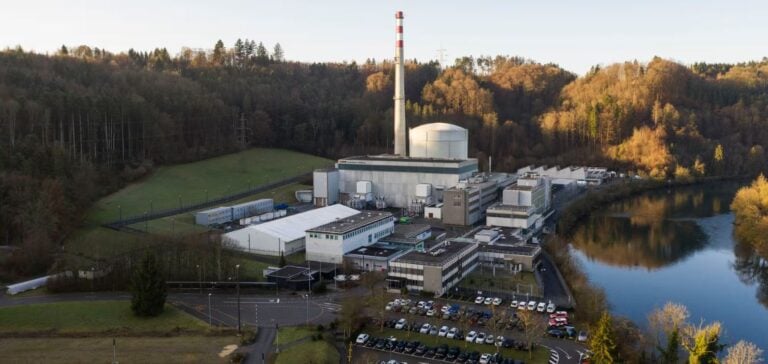The decommissioning of the Mühleberg power plant marks a first for Switzerland in terms of post-nuclear management. The UfG consortium, comprising Uniper Nuclear Services GmbH, Framatome GmbH and GNS Gesellschaft für Nuklear-Service mbH, is responsible for dismantling key plant components. These components include the pressurized reactor (RPV), its cover, the control rod housing and the RPV insulation. In all, around 270 tonnes of material will be removed, with the large-scale project due to start at the end of 2025.
A Swiss first
The Mühleberg power plant, with its 373 MWe boiling water reactor, was commissioned in 1972. At a time when nuclear power is the subject of much debate in Switzerland, it was the first Swiss nuclear facility to be shut down on December 20, 2019. Its dismantling began shortly afterwards, marking a historic turning point. Mühleberg was officially deemed out of service on September 15, 2020, when its operating license was replaced by a decommissioning order.
Three dismantling phases
Mühleberg is being dismantled in three distinct phases. The first phase was completed in September, well ahead of schedule, with the removal of 418 fuel elements from the plant. The second phase involves dismantling the controlled zones, and the third phase will ensure that the site no longer presents a radiological hazard.
Commitment from BKW and Uniper
In June 2022, BKW, the plant’s owner, submitted its application for the second phase of decommissioning to the Swiss Federal Nuclear Safety Inspectorate. This phase will include the dismantling of all components that have come into contact with radioactivity. In March 2023, Uniper Nuclear Services was contracted to dismantle and condition two steam separators at Mühleberg, demonstrating the steady progress of the project.
By the end of 2030, the Mühleberg power plant should be free of radioactive material, enabling the start of conventional dismantling scheduled for 2031. BKW plans to submit an application for conventional dismantling in 2027, marking the final stages of a long process towards site rehabilitation.






















